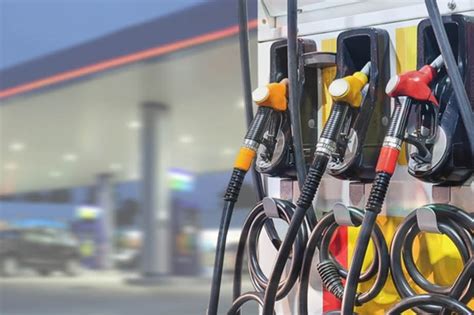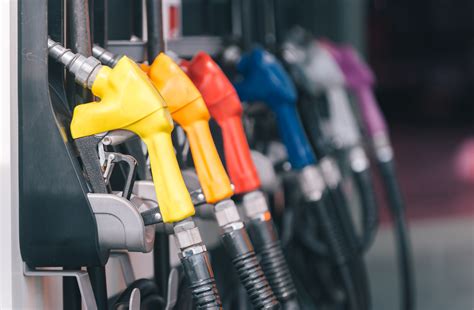Understanding Octane: The Core of the Premium Fuel Debate
For many car owners, the choice at the pump between regular and premium fuel is a moment of hesitation. Is paying extra for a higher octane rating a smart investment in engine health, leading to better performance and longevity, or is it simply throwing money away? The answer, as with many automotive questions, is nuanced and largely depends on your specific vehicle.
The key to understanding this debate lies in one word: octane. Octane rating is a measure of fuel’s resistance to ‘knocking’ or ‘pinging’ – a phenomenon where the fuel-air mixture in an engine cylinder ignites prematurely before the spark plug fires. This uncontrolled combustion can lead to decreased engine efficiency and, over time, potential damage.

What Does Octane Rating Actually Mean?
Regular unleaded fuel typically has an octane rating of 87, while premium often ranges from 91 to 93. It’s a common misconception that higher octane fuel contains more energy or offers superior cleaning properties. In reality, octane is purely about a fuel’s stability and its ability to withstand compression without auto-igniting.
Modern engines are designed with specific compression ratios and ignition timings. Engines with higher compression ratios or those that are turbocharged or supercharged generate more heat and pressure within the cylinders. These engines require higher octane fuel to prevent pre-ignition and knocking, ensuring the engine runs as designed and prevents damage.
When Premium Fuel is a Necessity
If your vehicle manufacturer explicitly recommends or requires premium fuel, then using it is non-negotiable for optimal engine health and performance. Vehicles like high-performance sports cars, luxury sedans, and many turbocharged or supercharged engines fall into this category. Their advanced engine management systems are calibrated to take advantage of the higher octane, allowing for more aggressive ignition timing and higher boost pressures to maximize power and efficiency without risking engine knock.

Using regular fuel in an engine designed for premium will likely trigger the engine’s knock sensors. These sensors detect pre-ignition and signal the engine control unit (ECU) to retard ignition timing. While this mechanism protects the engine from damage, it also results in reduced power, decreased fuel efficiency, and a less responsive driving experience. Essentially, you’re not allowing your engine to perform at its peak, negating the very reason you bought that specific vehicle.
The Myth of Universal Benefit: When Premium is a Waste
Conversely, if your car’s owner’s manual states that it’s designed for regular 87 octane fuel, pouring in premium 91 or 93 octane offers absolutely no benefit to engine health, performance, or fuel economy. These engines are calibrated for the lower octane and cannot take advantage of the higher knock resistance. Their compression ratios and ignition timing are simply not set to exploit it.
Many drivers believe premium fuel burns cleaner or offers better detergent packages. While it’s true that all gasoline sold in the U.S. contains detergents to prevent fuel system deposits, the quality of these additives is regulated, and premium fuel does not inherently contain superior cleaning agents than regular unleaded fuel from the same brand or a Top Tier™ certified station. The primary difference is the octane rating, nothing more.

Therefore, for vehicles designed to run on regular fuel, consistently buying premium is a financial waste. You’re paying extra for a characteristic your engine neither needs nor can utilize, with zero measurable benefits in power, efficiency, or engine longevity.
Are There Any Exceptions or Considerations?
There are very few scenarios where using premium fuel in a regular-octane-recommended car might be considered, and even then, the benefits are marginal at best. Perhaps in extremely hot weather or under heavy towing loads, if an engine designed for regular fuel starts to show signs of knocking (which is rare in modern, well-maintained engines), a higher octane might temporarily alleviate it. However, this usually points to an underlying mechanical issue rather than a fuel requirement.
Focusing on purchasing fuel from reputable stations and ensuring it meets Top Tier™ gasoline standards (regardless of octane) is a more effective strategy for engine health, as Top Tier fuels are certified to contain higher levels of detergent additives to prevent carbon buildup and maintain fuel system cleanliness.

The Verdict: Trust Your Owner’s Manual
Ultimately, the question of whether premium fuel benefits engine health or is a waste comes down to one authoritative source: your car’s owner’s manual. If it recommends or requires premium, use it to ensure your engine performs optimally and lasts longer. If it specifies regular unleaded, stick to it and save your money. There’s no secret benefit to over-octaning your engine; it’s simply a matter of matching the fuel to the engine’s design specifications.




